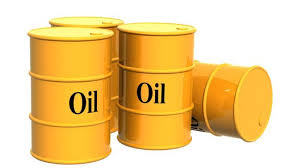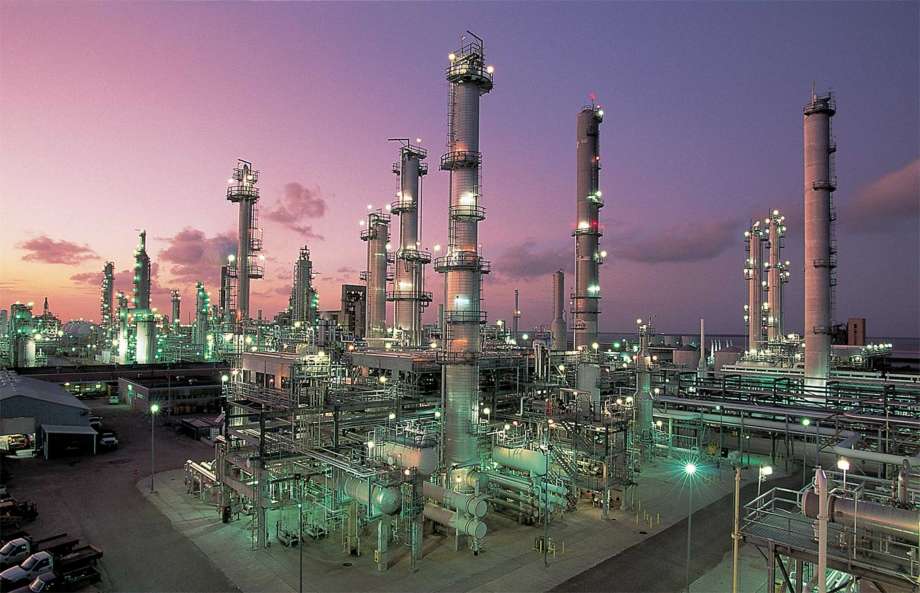
17 September 2013, Lagos – Three years after the Nigerian Content Act was enacted, Ejiofor Alike writes that while Nigerian indigenous entities are increasingly finding their feet in many fields of the oil and gas business, foreigners are still handling the largest chunk of the industry jobs
The Nigerian Content Act, which was signed by President Goodluck Jonathan on April 22, 2010, has no doubt recorded many achievements as the scope of oil and gas industry jobs, which were executed outside the shores of Nigeria before the law was enacted, are now being domiciled in-country.
This has led to the development of local capacity and capability as well as the retention of industry expenditure locally with the attendant positive impact on employment generation and growth of gross domestic product, GDP.
The Nigerian content law was a bold response to the low participation of indigenous facilities and manpower in the industry, which had resulted in the repatriation of about 90per cent of the $12billion yearly industry spending abroad, with its adverse effects on job creation and the growth of the economy.
Paucity of fund; absence of in-country capacity and inadequate manpower had denied the country the full benefits of her hydrocarbon resources as the wider scope of the industry jobs was performed in foreign fabrication yards; while expatriate workforce dominated local strategic positions in the industry.
The administration of former President Olusegun Obasanjo had attempted to reverse this trend by introducing the local content policy in 2003 to compel foreign players to set aside certain percentage of their jobs for indigenous contractors.
The administration also set a local content target of 70per cent to be attained in 2010, from less than five per cent recorded in 2004.
Though the Nigerian National Petroleum Corporation, NNPC, put mechanisms in place towards the realisation of this target, the multinational players did not key into the programme effectively due to absence of effective legislation to drive its implementation.
However, the signing into law of the local content policy has effectively led to systematic but gradual reversal of this trend as many indigenous professionals are increasingly building capacity and proving their mettle in the execution of technically-tasking projects.
Milestones
The Nigerian Content Act recorded its major achievement when Mobil Producing Nigeria, MPN, built three wellhead platforms locally for the development of 20 new oil fields in the country.
In an unprecedented move in the history of the country’s oil industry, MPN, operator of the joint venture, JV, with the Nigeria National Petroleum Corporation, NNPC, used a local company to execute two of these facilities at the Snake Island Integrated Free Zone in Lagos.
Mobil’s feat was a landmark achievement as the facilities were the largest fabrication contracts carried out in-country by Nigerian companies for the NNPC/MPN Joint Venture.
The project, which was under MPN’s Satellite Fields Development Programme phase 1, SFDP-1, is intended to develop the resources of over 20 discovered but undeveloped oilfields in the NNPC/MPN) JV acreage.
Phase one of the project, SFDP-1, comprises: Abang, Oyot and Itut, AOI, fields located in Oil Mining Leases, OMLs, 67 and 70, Offshore Nigeria.
The project seeks to recover more than 100 million barrels of oil and over 20 million barrels of oil equivalent of natural gas liquids.
Nigerdock was contracted to fabricate the Abang and Itut wellhead platforms, piles, coating and corrosion protection; installation of mechanical/electrical equipment skids, testing, sea-fastening and load-out; while Dorman Long Engineering Limited was also contracted to fabricate the Oyot wellhead platform.
As a demonstration of the importance of the project, President Goodluck Jonathan was at Snake Island in Lagos to inaugurate the Abang and Itut platforms.
Before the enactment of the Nigerian Content Act, this kind of projects was executed in foreign fabrication yards, with its attendant capital flight.
But by insisting that the platforms and other similar structures be fabricated in Nigeria, a workforce of over 1,000 had been supported and developed by the Nigerian content law.
Also for the first time in the history of the industry, ExxonMobil have used locally-made pipes, while other International Oil Companies, IOCs, have also committed to use locally-made pipes for crude oil transportation.
With this commitment, many companies have also commenced the setting up of pipe mills in Nigeria.
The Nigerian Content Development and Monitoring Board, NCDMB, and Shell Petroleum Development Company, SPDC, have also signed an agreement with five Original Equipment Manufacturers, OEMs, that have committed to invest $62million or about N9.6billion in the manufacturing of local components in Nigeria within the next three years.
The five companies were part of the 58 manufacturers of oil and gas equipment that met the technical requirements prescribed by NCDMB in its Equipment Components Manufacturing Initiative, ECMI, and had been issued Nigerian Content Equipment Certificates.
The investments planned by the five companies would create 250 skilled employment opportunities for Nigerians.
Other benefits include the transfer of technology knowhow, development of manufacturing skills and development of after-market maintenance skills.
There are also plans to impose a higher tax burden for equipment utilised in the industry, which has less than 50 per cent local content.
This action, which is in accordance with Section 48 of the Nigerian Content Act, will further address issues of price competitiveness usually associated with locally made goods.
FPSO Integration
Though much success has been recorded in the execution of certain categories of projects in the oil and gas industry in Nigeria and by Nigerians, the integration of fabricated steel structures into Floating Production Storage Offloading, FPSO, vessels is yet to be done locally.
FPSOs are floating vessels that store crude oil produced in both deep and shallow offshore and offload it into export tankers for shipment.
With storage tank that can store up to two million barrels of oil, FPSO also has helicopter landing facilities, accommodation facilities for over 180 personnel and source of power supply.
A typical FPSO for each of the Nigeria’s five deepwater oilfields has a length of over 300metres; weight of more than 110,000tonnes and 60metres of width.
But of the over 110,000tonnage, only about 8,000tonnes are fabricated in Nigeria by indigenous contractors as all the major fabrication works are done in Korean yards by Hyundai Heavy Industries and Samsung Heavy Industries.
Though Nigerian indigenous companies fabricate structural steel components of up to 8,000 tonnage, these structures are transported to foreign fabrication yards for integration into the main FPSOs, before the FPSOs sail to Nigeria, on completion.
Currently, provision of subsea systems engineering and project management along with subsea Christmas trees, production and intervention control systems, manifolds, flowline connection systems, installation support and associated spares are done in the United Kingdom and also integrated into the FPSOs in Korean yards.
Fabrication, assembly and testing of manifolds and associated structures are done mostly by Norwegian firms while the contract for the umbilicals, flowlines, risers and oil loading terminal activities are executed by Italian contractors.
The commissioning and startup of the subsea umbilicals; flowlines and risers connecting the subsea wells to the FPSO, along with the oil-loading terminal, consisting of an offloading buoy and offloading lines and part of the FPSO anchoring system are done in Nigeria with the assistance of foreign companies.
Crude Oil Transportation
Contrary to the provisions of the Nigerian Content Act, which stipulates that Nigerian crude oil should be transported with the country’s vessels, no Nigerian vessel is currently involved in the transportation of crude oil, three years after the law was signed.
The Nigerian National Petroleum Corporation (NNPC) had worsened the case of indigenous players when it attempted to effectively exclude indigenous companies from participation in the lifting of crude oil in the 2012/2013 guidelines, prompting the intervention of the NCDMB.
But due to the intervention of the NCDMB, the guidelines were revised to encourage local participation and interested applicants were required to provide commitment from prospective shippers to lift Nigerian crude, “that a minimum of five slots per cargo shall be set aside for ocean-going attachment of Nigerian cadets for the purpose of obtaining international certification”.
“Interested applicants must submit a Memorandum of Agreement with shippers demonstrating a credible strategy to grow Nigerian equity in the tankers nominated to lift allocated Nigerian crude to 25 per cent by 2014 and 90 per cent by 2017. It should be noted that evidence of Nigerian equity in the nominated tankers prior to conclusion of the process shall give trader competitive advantage,” said the guidelines.
The guidelines also required interested applicants to submit a detailed Nigerian content execution strategy to the satisfaction of the NCDMB, clearly setting out Nigerian Content commitments for subcontracting in some selected areas of the economy.
These areas include insurance and legal services; banking and financial services; training and capacity building and cargo inspection and survey.
However, since the guidelines were issued, many indigenous players have demonstrated commitment to ensure that Nigerian-flagged vessels are involved in the transportation of the country’s crude oil.
Score Card
The real Nigerian content value in the oil and gas industry currently hovers between 12 per cent and 18 per cent, according to statistics by the NCDMB.
The Executive Secretary of NCDMB, Mr. Ernest Nwapa, recently admitted that three years after, Jonathan signed the Nigerian Content Bill into law, the legislation had increased the Nigerian content in the area of manufacturing of equipment used in the industry to only seven per cent.
But the average performance in the implementation of the Act is about 30 per cent, from two to five per cent three years ago.
However, the proportion of contracts awarded to Nigerian companies in the sector has risen to between 70 and 85 per cent.
Although there is a marked increase in contracts awarded to Nigerian companies, the industry still has a long way to go towards recording substantial percentages of real Nigerian content.
According to Nwapa, the real Nigerian content value is based on the proportion of the monetary value of contracts that is spent within the country’s economy, especially on Nigerian-made goods and services rendered with Nigerian-owned assets and equipment.
He identified a major weakness of the local supply chain in Nigeria as the absence of manufacturing activity and said for such a mature industry, a supply chain without local manufacturing is like a house without solid foundation.
Nwapa said without developing local manufacturing of components used by the industry, there would be no further Nigerian content growth and creation of employment opportunities would be stunted.
He said the NCDMB conceived the Equipment Components Manufacturing Initiative, which seeks to get local representatives of Original Equipment Manufacturers (OEMs) in Nigeria to partner with such OEMs to set up manufacturing facilities in Nigeria.
Though much successes have been recorded in the implementation of the Nigerian Content Act, with Nigerian companies demonstrating competence and capability, the objective of the legislation will not be attained unless the greater proportion of the equipment used in the industry is manufactured locally.
– This Day



